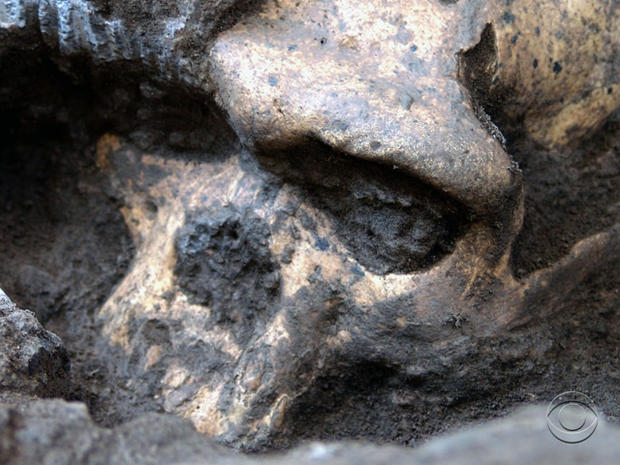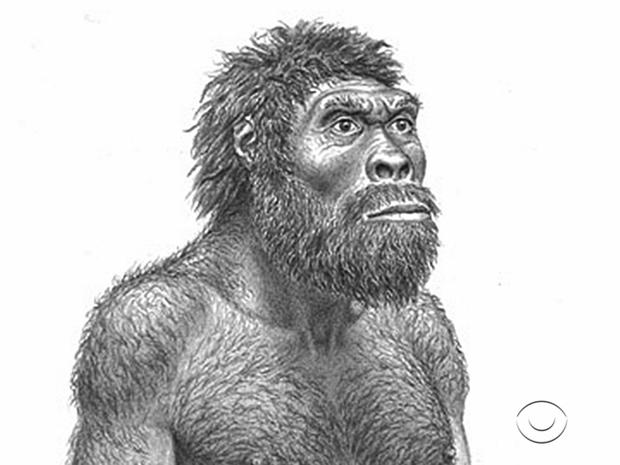Newly found ancient skull could rewrite human history
(CBS News) Humanity's family tree may need some pruning. The discovery of an ancient skull has revealed clues that could shake up the accepted theories of human evolution.
From the moment they discovered the skull buried under a village in the former Soviet republic of Georgia, scientists knew they had something applause-worthy.
At 1.8 million years old, the skull may do nothing less than rewrite the history of humanity.
"It's an almost perfectly complete skull," said Jamie Shreeve, executive science editor for National Geographic, "and because of that, it has a lot of information."
"Skull 5," as it's known, belonged to an adult male with a large jutting jaw and brain case less than half the size of a human today. Four other partial skulls were found with it, dating from the same time but with great variations from each other -- the same kind of variations seen in modern humans.
"We don't call modern human pygmies and Eskimos different species obviously," said Shreeve, "and so they think we should not call these things a different species, too."
Meaning that instead of many branches in our evolutionary family tree thought to lead to us, like homo habilis and homo ergaster, they may all have just been one: homo erectus.
"You have to be really careful with this," said Shreeve, "because in paleoanthropology you are measuring individuals in order to make conclusions about whole populations or whole species."
Like evolution itself, the understanding of it is a work in progress.
Learn more about National Geographic scientists and explorers here.


